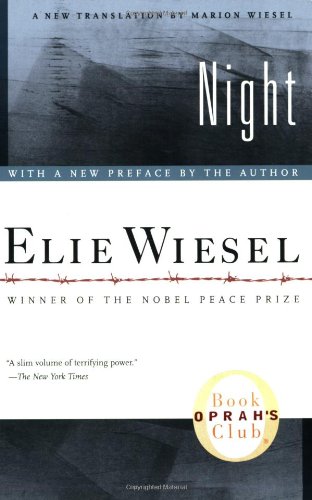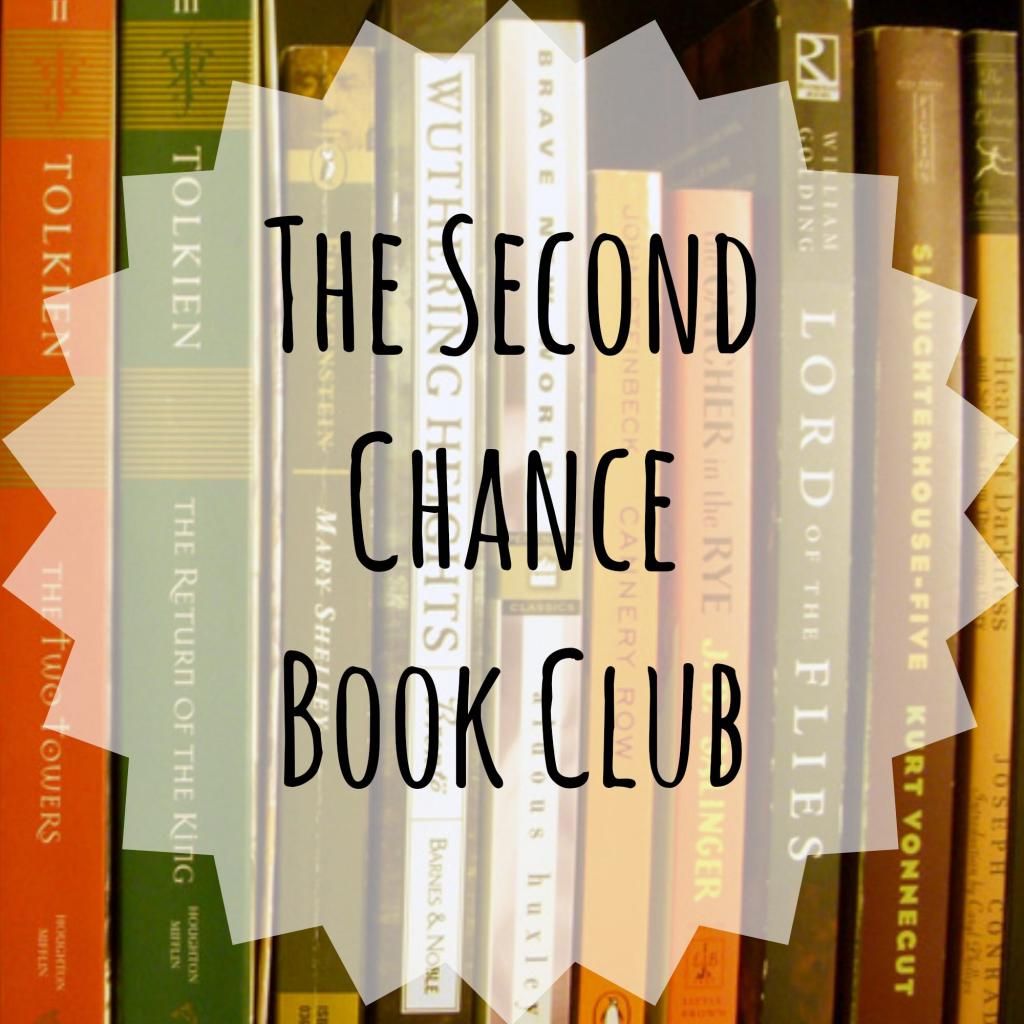Clearly I am late to my own book club party… A week and a half late. Not cool. Again, I blame January’s thesis proposal.
But here we go. Night by Elie Wiesel.
First of all, what did you think of the book? Was it what you were expecting? Why or why not? Were you surprised with anything? If you've read it before, what new things did you notice this time around? Overall, I enjoyed the book. I had never read this title before, although I had heard of it multiple times. I had a general understanding that it was about World War II and the Holocaust, but I didn’t know anything past that. As I read, though, I found myself chewing over the genre of Holocaust literature as a whole. I am in the midst of teaching The Book Thief in my own classroom, I have taught The Diary of Anne Frank in the past, and so many more titles exist about this subject matter. The Holocaust is such a powerful, defining event in human history and, likewise, I firmly believe literature is a representation of human experience. I read Night fairly quickly, but it is a title I will definitely come back to at least once more. It is a title that I want to purchase for my own bookshelf and then spend time really pouring over and working through the text because it is so raw, passionate, and convicting.
Wiesel describes his faith before the Holocaust. How does his faith change throughout his experiences? Before the Holocaust, Wiesel’s faith was a way of life that he took for granted. Through his experiences as a religious prisoner, his faith became more real to him because he realized it was something he was going to have to fight for. He was no longer surrounded by a faith community and life was now just him and God. What may look like a destruction of faith for one person may be a strengthening that only the individual can understand. Conversely, what may appear as a strengthening of faith may be the result of superficial expression. Wiesel’s faith change is a matter between him and God alone.
What meanings could "night" have throughout the book? (figurative and literal) So many possible meanings for “night” throughout the book. First, we have night as in the literal end of the day. Wiesel reminisced about "night" multiple times as he recalled the last couple of evenings with his faith community before departure to the concentration camps. He described night at the concentration camps and he also relived his memories of marching and moving during the night to avoid attack during the war. Figuratively, “night” acts as a means to the ends of Wiesel’s life as he knew it, of his family unit as he remembered, of himself as the naive child he was, of so much of his Jewish heritage and culture, and of the kindness of much of the human race. As always, though, with the night comes morning and Wiesel experienced his own morning as well.
Who are the victims, the bystanders, and the perpetrators in Night? Can these roles overlap at all? If so, how do they? I really wish I hadn’t read this book so quickly. Like I mentioned above, I am currently teaching The Book Thief in my own classroom so my mind kept going back and forth between these two books. I fully believe the roles of victim, bystander, and perpetrator can overlap and they do overlap in Night and one can see it as well in The Book Thief. I cannot imagine going through the experiences these people did, but the fact of the matter is that human nature is evil and that evil emerges in both of these books. I cannot think of a character who is wholly good or wholly bad. Even the Jewish people, although they are clearly the attacked, show their own sinful natures as the become perpetrators against each other, bystanders who let the trouble go, and active agents in bringing suffering upon their fellow brothers in prison.
Which scenes from Night stood out to you most vividly? And why? I found myself considering Night as part of the overall genre of Holocaust literature. The Holocaust itself is an event that defines the human race. What we are given through Night is one Jewish man’s experience with his father. It is a pretty small picture, really, but it has been turned into a very powerful piece of text. What stood out to me most vividly was my own emotional reaction. My mind was going a hundred miles per hour between this text, The Book Thief, The Diary of Anne Frank, and then the rest of Holocaust literature I know is out there. I am really interested to now read about the Holocaust from “nontraditional” perspectives, if you will. What would the German soldier have to say? What about a normal citizen who was safe from the wrath of the Germans? What about the Jew who turned on his people for safety in the concentration camp? What do other people have to say about this hellacious time in world history?
Wiesel describes himself as a "corpse" at the end of the book. How did he die during his trials and did he ever start living again? In short, I believe Wiesel died in that he was forever changed by his experiences and his life was never the same. He started living again once he left the confines of the camp and imprisonment, but the life he lived after was not the same he lived before. Wiesel walked away as a man forever changed by senseless violence and needless atrocity. The life he lived after is evidence of the resilience of the human spirit and the ability to overcome in spite of human cruelty and selfish defeat.
Finally, in what way can you connect with Elie? How does he as a person influence us as readers in 2015? As much as I hate to say it, I believe the Holocaust is a prime example of suffering transcending specific circumstance or experience. We are forever changed by each circumstance in life-- some for the better, some for the worse, and some more profoundly than others. The fact of the matter is that we live in a world riddled by brokenness and suffering and we will all experience that broken and suffering at some point in our life. We can choose to be a victim and cease to overcome or we can take Elie’s example and fight to regain control of life although that life will never be the same. Suffering and brokenness is universal, whether it be 1945 or 2015.






Post a Comment